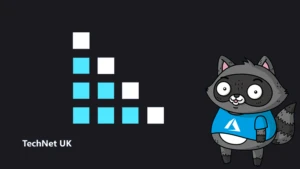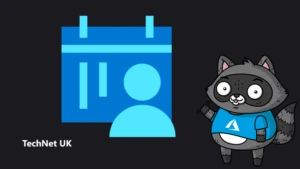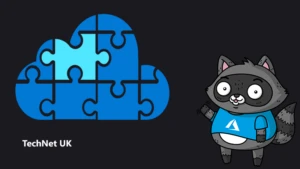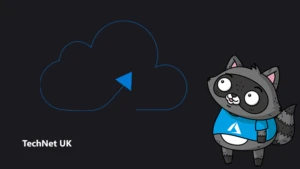
MVP Spotlight: Learning DevOps with Marcel Lupo

Welcome to our new MVP Spotlight series! We’ll be talking with some of the wonderful people in our MVP program about their areas of expertise, so that we can learn more about how they got started and their recommendations for others doing the same. We’ll also point you towards the resources they’ve worked on, whether it be articles, videos or podcasts, to help you level-up your own skills.
Meet Marcel, DevOps MVP
 This time I caught up with Marcel Lupo, where I asked him about his personal DevOps journey, and how others can get started on their own.
This time I caught up with Marcel Lupo, where I asked him about his personal DevOps journey, and how others can get started on their own.
Chris: Introduce yourself!
Marcel: I’m a Microsoft DevOps MVP, Cloud Solutions & DevOps Architect and technical speaker focused on Microsoft technologies in the Azure cloud platform. I specialise particularly in Automation, DevOps and Developer Technologies, with a strong focus on Infrastructure as Code (IaC), Azure DevOps and GitHub. I am passionate about technology and how it can be used in automation to bring true value and solve complex business problems.
I’m a regular speaker at conferences and meetups, and enjoy sharing knowledge and technical content with the wider tech community. I currently work at Avanade UK&I as a Group Manager in DevOps Engineering. As a global DevOps lead for infrastructure and operations professionals, I help build next-generation operating models for digital organisations and help them adopt DevOps culture and innovate on cloud platform services such as Azure.
C: How did you get into DevOps?
M: Coming mainly from the OPS end of the spectrum, I started out as a very seasoned sysadmin with over 18 years’ experience across large and small companies where I had always taken the “Automate everything” approach. I saw the role of systems administration as a role that shouldn’t exist if a system was configured and maintained right.
So wherever I worked I wanted to make things easier not only for myself but for others around me, empowering myself and others to accelerate and succeed in tasks taken on the day to day. I looked at every process and improved on it, taking any repetitive tasks and automating them. I wanted to make things simpler, such as changing 10-step manual processes to a “zero-touch” fully automated solution. Spotting and improving inefficiencies with companies I worked with was also high on my list of objectives.
I transitioned into what is known today as DevOps naturally due to my past working experience with automation. The exposure working alongside developers and embracing the “DEV” culture and the way we worked together meant we ultimately adapted the same practises and disciplines into Operational teams, Security teams and IT teams, where we shared a lot of amazing success stories. We worked with large companies using the Microsoft Cloud to continuously innovate and do incredible things, but most of all to increase efficiencies through the automation of build and deployment, through scalable workloads and much more.
C: Why should other people adopt DevOps?
M: There are so many benefits to adopting DevOps and it’s by no means limited to the following, but DevOps has been proven to increase the speed, efficiency and quality of software delivery as well as improving staff morale and motivation. It removes the communication barriers between teams, therefore removing the reliance on the availability of an individual person or team for software delivery to progress. Efficiency is increased as decisions are made collectively by all involved, and feedback to those decisions is rapid.
Work quality is also improved by the introduction of automation which removes repetitive tasks. DevOps delivers applications, infrastructure and even security in a consistent fashion, removing the mistakes that humans typically make. As the burden of manual work is removed from staff members, they can then focus on more creative work that increases their job satisfaction and adds real value to the organisation.
By establishing automated services, the ongoing operational costs are lower than the human equivalent. There is also a significant speed advantage as automated processes are much faster. The quality of the entire release process improves because steps in the pipeline become standardised, thus creating predictable outcomes.
The DevOps approach results in ease, reliability and confidence to release frequently. This allows for continuous feedback to be rapidly incorporated into future releases, whether that be for software delivery, infrastructure builds or even operational and security automation to be truly Agile.
C: Do you have any tips for people starting their DevOps journey?
M: DevOps is without a doubt the future. It can be applied everywhere – it’s not just for developers developing applications or a product. DevOps can be applied to Infrastructure, Operational tasks, and even Security. When it comes to identifying skillsets and the need for the understanding of how to work in a DevOps environment, there is no doubting that it is becoming more and more important.
DevOps is certainly a culture, and not a role, so my advice is to begin learning as much as possible about DevOps and the culture behind it. It can be applied to almost any environment, as it’s not limited to software delivery. Having prior development or developer experience can also be particularly helpful, but it’s not essential, coming from a non-developer background myself.
I would say that I never saw myself as a developer, but in reality, if you write any sort of automation scripts whether that be PowerShell, Python, Bash… you are essentially a developer.
For anyone starting out, I would recommend learning at least one scripting language and try to automate tasks. Start with the foundations first and also learn about cloud and what cloud platforms are and when to use them. Look at how you can adopt cloud technology and automation together. Microsoft has some amazing foundational courses and certifications in their cloud platform, Azure. But most of all, have fun!
Marcel’s DevOps content
Fortunately for us, Marcel has written a wealth of content both on DevOps and on topics related to it, so it’s a great way to get stuck in. Check out our curated selection of articles below, but be sure to check Dev.to for a more comprehensive list of everything that is available.
Articles
- GitHub Codespaces Pro Tips
- Terraform Pro Tips
- Self Hosted GitHub Runner containers on Azure
- Create a Docker based Self Hosted GitHub runner Windows container
- Create a Docker based Self Hosted GitHub runner Linux container
- Build Docker based GitHub runner containers on Azure Container Registry (ACR)
- Run Docker based GitHub runner containers on Azure Container Instances (ACI)
- Autoscaling self hosted GitHub runner containers with Azure Container Apps (ACA)
- Run Docker based GitHub runner containers on GitHub Codespaces
Videos and Podcasts
- Automate Azure Role Based Access Control using Azure DevOps
- Automate password rotation with Github and Azure
- Automate Azure Resource Decommissions (with tracking)
You can find Marcel on Dev.to and Twitter. He’s also organising and speaking at the London Microsoft DevOps Meetup on November 2nd.




